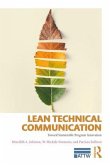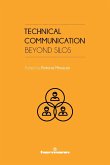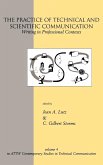This book explicates the relationships between design thinking, critical making, and socially responsive technical communication. It leverages the recent technology-powered DIY culture called "the Maker Movement" to identify how citizen innovation can inform cutting-edge social innovation that advocates for equitable change and progress on today's "wicked" problems. After offering a succinct account of the origin and recent history of design thinking, along with its connections to the design paradigm in writing studies, the book analyzes maker culture and its influences on innovation and education through an ethnographic study of three academic makerspaces. It offers opportunities to cultivate a sense of critical changemaking in technical communication students and practitioners, showcasing examples of socially responsive innovation and expert interviews that urge a disciplinary attention to social justice advocacy and an embrace of the design-thinking principle of radical collaboration. The value of design thinking methodologies for teaching and practicing socially responsible technical communication are demonstrated as the author argues for a future in the field that sees its constituents as leaders in radical innovation to solve wicked social problems. This book is essential reading for instructors, students, and practitioners of technical communication, and can be used as a supplemental text for graduate and undergraduate courses in usability and user-centered design and research.
Bitte wählen Sie Ihr Anliegen aus.
Rechnungen
Retourenschein anfordern
Bestellstatus
Storno








